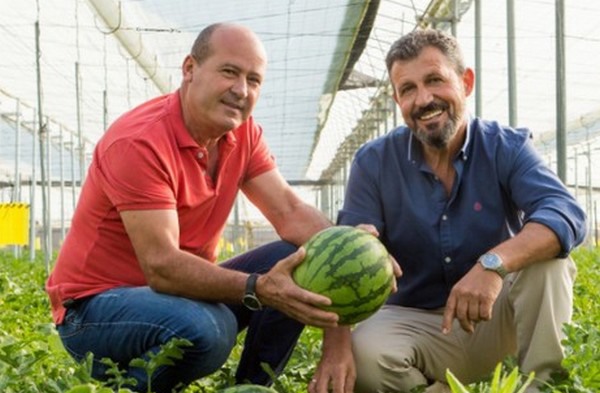The Missing Link in Agriculture
Unica Group is the largest independent fruit and vegetable exporter in Spain, generating around 500 million kilograms of fresh produce every year. As the organization announces its aim to reach 1,000 million kilos in the next three years, Enrique de los Ríos, Agro-Food Marketing & International Consultant at Unica Group, talks to Bayer about digital tools and the missing link in agricultural profitability.
What can you tell us about Unica Group?
Unica Group exports more than 100 different products, sourced from 5,000 growers over 9,000 hectares of greenhouses and open fields. Our range includes everything from peppers and tomatoes to watermelons and citrus fruits. As Spain’s largest independent fresh produce exporter, our products are found all over the world, particularly in Germany, Poland, the UK, France and the Nordic countries. We even export to the US.
How big an issue is residue management, particularly considering the markets you serve?
Residues were a major issue for everyone 15 years ago, but the industry has since moved to bring them more under control.
Peppers can be tricky because they have a thick, solid skin, so the concentration of residues is often higher than on other crops. It helps that we grow them within a greenhouse environment where they cannot be affected by wind carrying residues onto the crop.
The challenge we have with residues is the added complexity that comes from the use of pesticide-controlled tools from our large number of growers. However, since the introduction of biological controls, we have got residues a lot more under control. European retailers have been increasing restrictions for residues for some time so we have to stay ahead of this. We believe that digital tools could help us make even further progress when it comes to residue management.
What regulations do you have to follow regarding residues?
Regulations are handed down by authorities and retailers, but for us, retailer restrictions are tighter. Lidl, a supermarket chain active in Germany, UK and elsewhere across Europe, sets very high standards. Its limit is three times lower than the MRL (maximum residue limit) in Europe, so it is often the case that if we adhere to Lidl’s standards, we adhere to others as well.
How is technology aiding Unica Group?
We view digitalization and technology as a strategic business tool. Four years ago we introduced new technology for growers which utilizes real-time data to help them improve their processes. It is essentially a sophisticated record management system that leverages artificial intelligence and Big Data.
For technology to be successful you need to understand a grower’s mindset. A lot of growers like to compare and benchmark their work. A grower may manage three different hectares in different locations. Our technology can measure the performance of their crop management in each hectare and report back the results so they can adapt techniques.
If you can say to a grower that there are other growers within Unica who earn more money because they have better processes, or are more productive in the field, they are likely to want to know how and then we can begin to show them.
How successfully is Unica Group using digital technology?
Our record management system has helped to improve output among our grower network by at least 10% in the past four years. It comprises an important part of our 30x5 program, which has the aim of increasing productivity by 30% in five years.
Digital tools are critical for more effective and profitable farm management and Unica Group is very open to new technologies that will help us continue to reach our goals. The possibilities for technology in our business are endless – for instance, digital tools have the potential to help us better manage residues and further improve our crop protection program.
What’s the key to technology adoption in agriculture?
For Unica Group, there is a missing link to greater agricultural profitability made possible by technology. You have three trends at the moment: technology, sustainability and the one that people often disregard is psychology. These three must go together.
We don’t force technology or sustainability on anyone – you can’t. You have to encourage the grower to want to use technology and become more sustainable, and for that to happen you need to understand their mindset and what drives them. We already use artificial intelligence and Big Data to encourage competition between growers with a gamification element. We are constantly working with our suppliers and partners to investigate new technologies and understand how they can further streamline our farm management and crop protection programs.
Any technological change requires a change in the mind of the grower. If you can provide an emotional link or a motivation to embrace change, that’s the missing link that you put with technology and sustainability for more profitable agriculture. At Unica Group, we have a desire and a culture for digital farming and are always keen to explore new solutions.
For more information:
http://unicagroup.es
https://www.bayer.com/de

